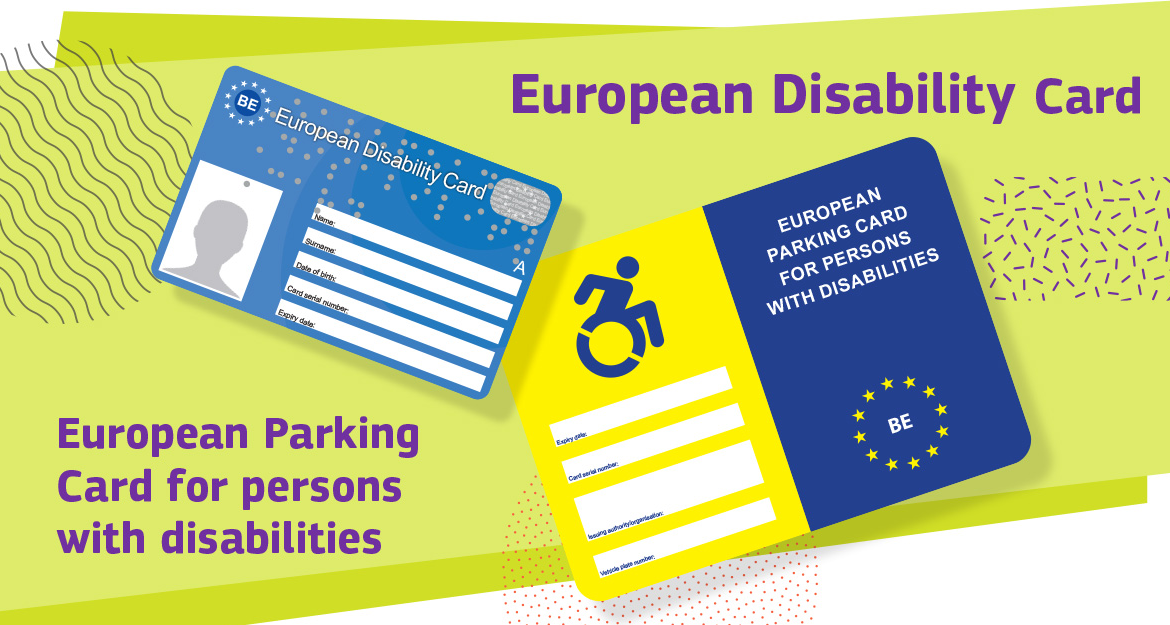
Today, 8 February 2024, in Strasbourg, France, Members of European Parliament (MEPs) and representatives of the European Union (EU) Member States have reached a political agreement on the European Disability Card. Autism-Europe has been advocating for this card, notably highlighted its key benefits for autistic people and other people with invisible disability – for a long time already. Therefore, we strongly welcome this key step to make the Card a reality. Autism-Europe now looks forward to its formal adoption and its implementation across the European Union.
According to the deal, the European Disability Card will be recognized as proof of disability across the EU. This way, during short-term stays in other EU countries, persons with disabilities will be guaranteed equal access to special conditions and preferential treatment with respect to public and private services, activities and facilities.
Members of the European Parliament (MEPs), led MEP by Lucia Ďuriš Nicholsonová from Slovakia, reached an agreement on the European Disability Card with the Council of the European Union representing the EU member states and led by the current Belgian EU presidency. The Directive was proposed by the Commission in September 2023, and the political agreement came in record time. Once the final text is ready it can be formally approved by the European Parliament and the Council of the EU. This will most likely happen in spring 2024 before this year’s European elections in June.
Autism-Europe strongly welcomes this agreement, and in particular, that it includes almost all transport services and provisions to access support when taking part in EU Mobility Programmes (like Erasmus+). The European Disability Card will be issued and renewed free of charge. An EU-level website in all EU official languages and national websites with information on the Card will be established. Safeguards will be implemented to protect the European Disability Cardholders’ privacy. EU Member States can decide to extend the use of the Card to longer stays. Very useful for autistic persons with complex support needs will be that the letter “A” can be added to the European Disability Card to signal the need for a personal assistant.
Unfortunately, the deadlines for transposition and implementation of the European Disability Card are quite long. EU Member States will have 30 months to transpose the legislation into national laws and 42 months to start providing the Cards. This means that the European Disability Card will only fully become a reality in about 4 years from now.
Despite the demands of the disability movement, the agreement does not foresee temporary access to disability support and allowance when persons with disabilities move to work and study abroad. It means autistic people might not be able to get all the support needed while undergoing the “reassessment “of their disability when permanently relocating to a different EU Member State. Another issue remains the limited services to which the European Disability Card will apply.
However, we particularly welcome the fact that the European Parliament and the Council of the EU committed to further exploring remaining gaps related to free movement of persons with disabilities, e.g. portability of disability support when moving to another EU Member State.
Autism-Europe hopes that this speedy agreement also paves the way to extend the European Disability Card to third-country nationals with disabilities residing in the European Union, including many hundreds of Ukrainians on the autism spectrum that had to leave their country due to the on-going war.
Together with the introduction of the European Disability Card, the agreement following the European Commission joint proposal also considerably revamped the European Parking Card for people with disabilities, which was first introduced over 25 years ago. The parking card has a clear timeframe for how long public authorities can take to deliver the Card to avoid long waiting times and the possibility to include digital features to prevent fraud, such as QR Code.